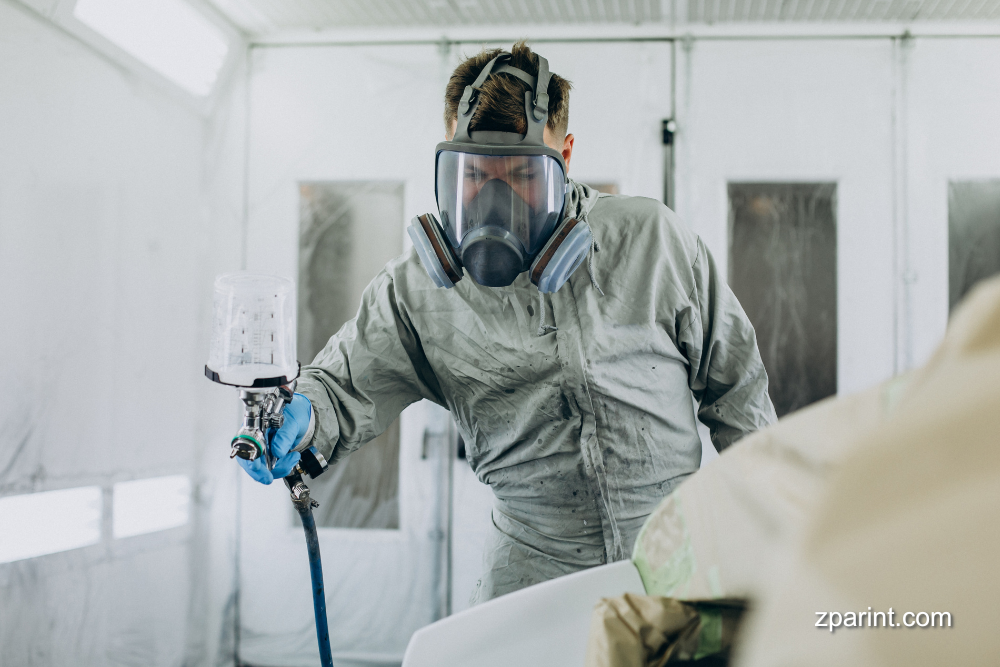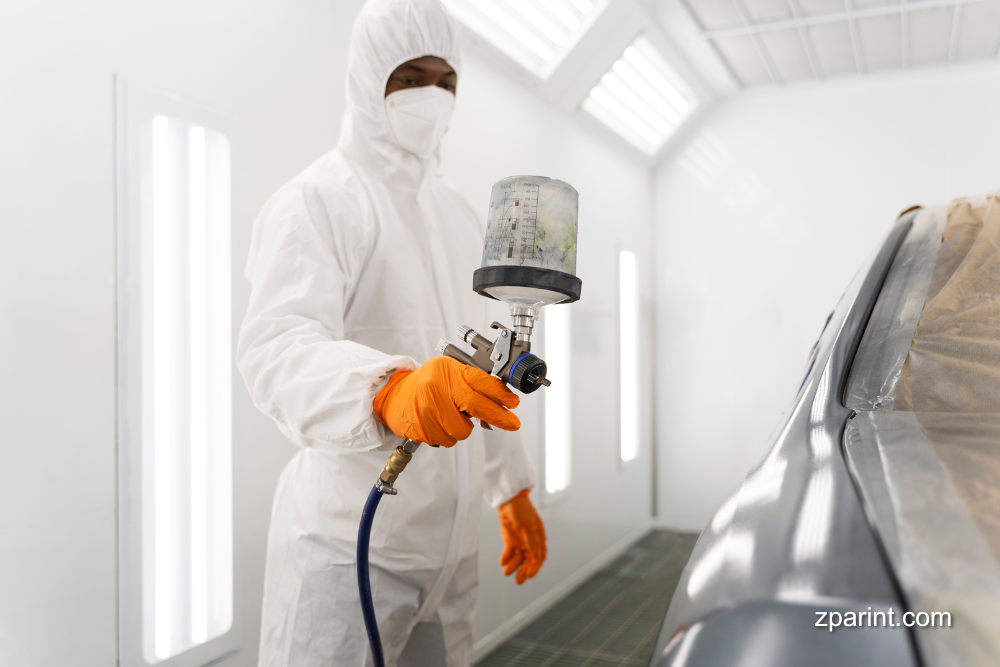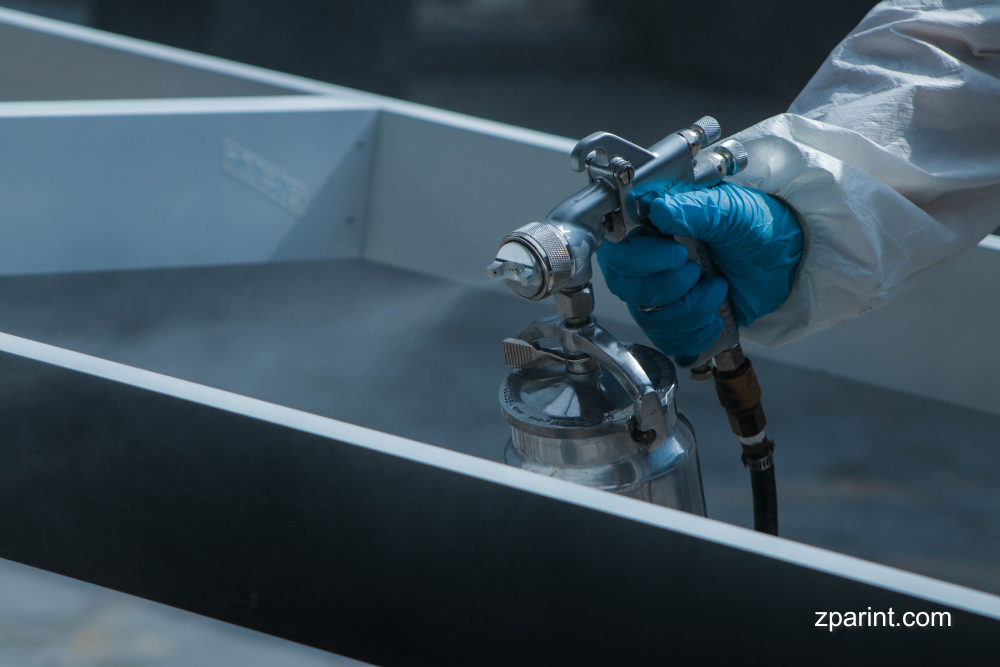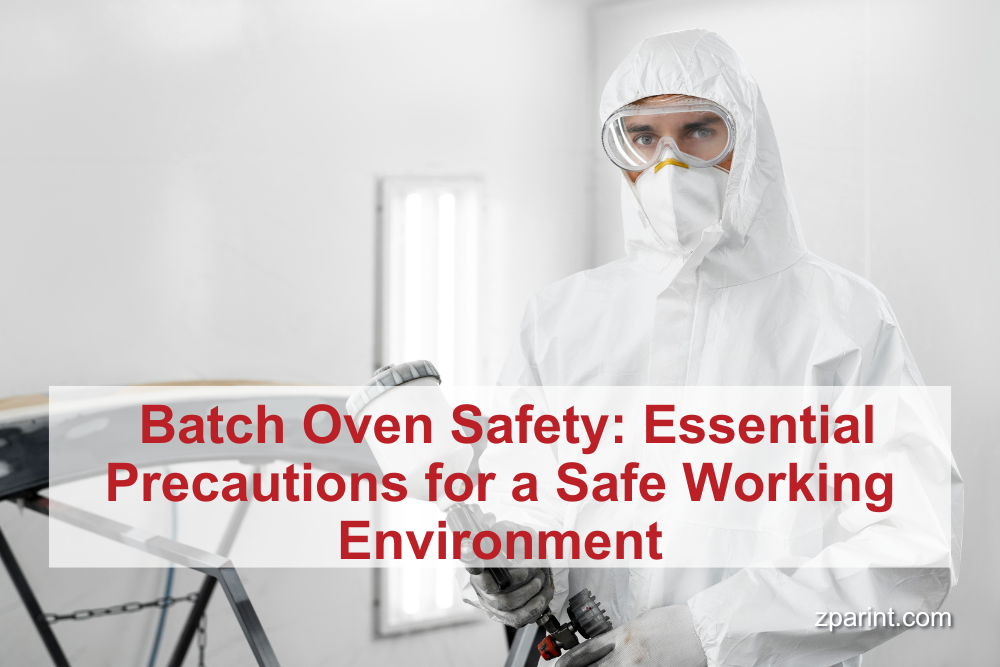In high-heat finishing operations, batch ovens play a critical role in curing, drying, and heat treating coatings or components. However, the very factors that make batch ovens indispensable—extreme temperatures, pressurized systems, and flammable materials—also introduce significant safety hazards. Whether you’re curing aerospace components or finishing automotive parts, overlooking safety precautions can lead to operational downtime, costly damage, or serious injury.
At Zpar International, we understand that productivity hinges on more than just performance—it depends on a safe and controlled work environment. Below, we outline essential precautions to keep your team safe and your batch oven running efficiently.
Burn Prevention Starts with Proper Training and PPE
High surface temperatures during oven operation easily exceed 300°F (150°C), creating burn risks during loading, unloading, or maintenance procedures.
Best Practices:
– Use Insulated PPE: Operators should wear high-temperature resistant gloves, long sleeves, and face shielding when interacting with hot components or internal oven surfaces.

– Designated Cooling Zones: Establish clear protocols to allow adequate cooling time before parts are removed directly by hand.
– Clearly Mark Hot Surfaces: Use permanent, heat-resistant signage to indicate high-temperature areas inside and outside the oven chamber.
Mitigating Fire Risks Through Smart Oven Design and Operation
Combustible materials and volatile organic compounds (VOCs) are often part of the finishing process. Improper handling or environmental control can turn your batch oven into a fire hazard.
Minimize Fire Risks By:
– Monitoring Exhaust Systems: Regularly inspect and maintain oven exhaust systems to prevent the buildup of VOCs. An inefficient exhaust can allow flammable vapors to ignite.
– Proper Curing Temperatures: Always operate within the material-specific curing profiles recommended by coating manufacturers. Overheating can lead to spontaneous ignition.
– Built-In Safety Interlocks: Ensure your oven is equipped with fail-safe interlocks, high-limit switches, and burner flame failure alarms. These are essential lines of defense in preventing fire incidents.
Ensure Adequate Ventilation
Ventilation isn’t just about managing heat—it’s about maintaining air quality and preventing the accumulation of hazardous vapors.
Ventilation Tips:
– Comply with NFPA Guidelines: Ventilation rates should meet or exceed NFPA 86 standards for industrial ovens, ensuring air changes keep pace with process emissions.

– Use Explosion-Proof Fans and Controls: In facilities where VOCs are used, ventilation components should be rated for flammable environments to reduce ignition risk.
– Don’t Seal the Chamber Completely: A common mistake is sealing compartments too tightly. This can reduce the influx of fresh air and cause pressure imbalances within the oven.
Have Emergency Procedures in Place
Accidents can still happen—even in the most controlled environments. Being prepared translates to quicker response times and reduced impact.
Critical Steps:
– Implement an Emergency Shutdown Protocol: Operators must be trained to safely shut down the batch oven in the event of overheating, power failure, or fire.
– Keep Extinguishers and Alarms Close: Fire extinguishers should be rated for industrial use and positioned within easy reach of the oven station. All alarms and emergency stops should be regularly tested and maintained.
– Conduct Regular Safety Drills: Reinforce best practices with periodic walkthroughs and fire safety scenarios. Empower staff to respond calmly and consistently.
Prioritize Safety with Trusted Expertise
In any industrial setting, safe operation isn’t a convenience—it’s a necessity. Proactively addressing burn prevention, fire safety, ventilation, and emergency response protocols not only protects your team but also safeguards your equipment investment and production timelines.
Zpar International specializes in custom-engineered batch ovens designed with comprehensive safety features tailored to your process. Whether you’re upgrading legacy equipment, expanding your finishing capacity, or developing a new product line, our in-house engineering team offers guidance built on decades of field experience.

Safety begins with innovative equipment and is sustained through informed operation. Contact Zpar International today to discuss how we can support a safer, more compliant finishing environment.

